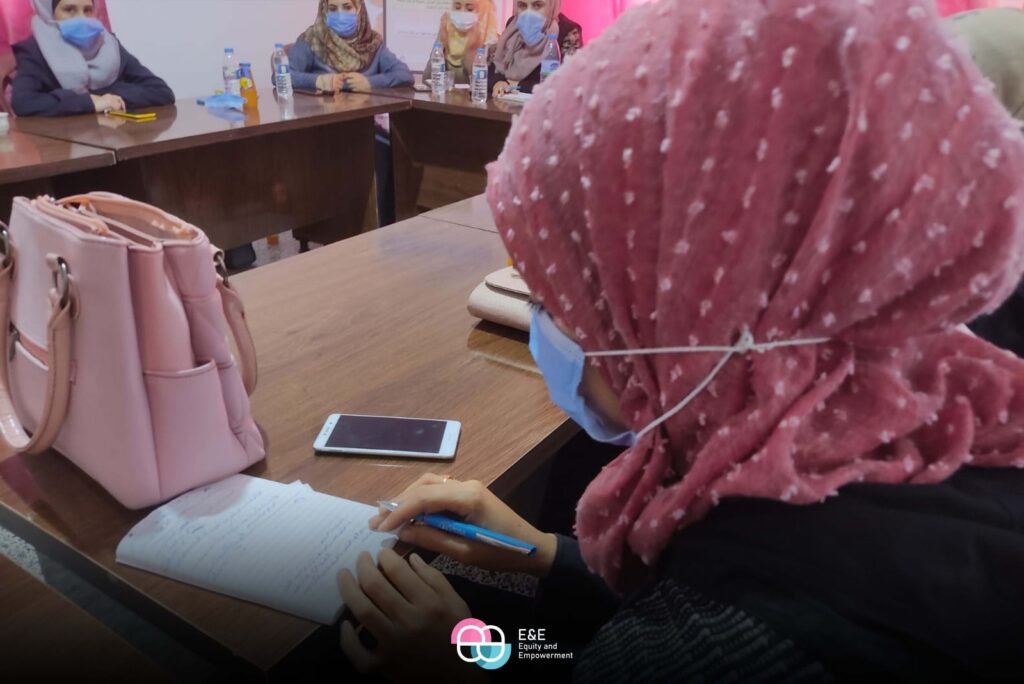
Cyber violence has become a concerning phenomenon that significantly impacts society, particularly women. It doesn’t just cause psychological harm but also deepens social and cultural divides, increasing isolation, anxiety, and fear among victims. Women, in particular, face various forms of cyber violence, which can have devastating psychological effects, ranging from anxiety and depression to shame, isolation, and, in extreme cases, suicide.
Every day, we hear thousands of stories about boys threatening girls with their photos, or girls sharing their friends’ photos in Facebook and Telegram groups, leading to reputation damage, and sometimes even death!
Cyber violence includes many practices, such as online harassment, where victims receive unwanted threatening or sexual messages, and cyberbullying, which involves spreading rumors or humiliating content online. Additionally, cyber blackmail is one of the most dangerous forms, where victims are threatened with the release of sensitive photos or personal information unless they comply with the abuser’s demands.
Equity and Empowerment launched the “It’s Not Your Right” campaign to raise awareness about cyber violence and blackmail faced by women and girls on social media. During the campaign, we heard painful stories of women who had been subjected to cyber violence and blackmail, and we provided daily steps to protect themselves from this kind of violence, which may not leave physical marks but has profound psychological effects.
The need for intensive awareness campaigns became apparent, especially to increase knowledge about the dangers of cyber violence and online blackmail that women face on social media. These campaigns included awareness sessions focusing on how to recognize suspicious behavior and protect personal information. Additionally, awareness materials such as brochures and educational videos were developed to teach the best ways to handle such threats.
Knowledge plays a vital role in combating cyber violence and protecting women. The more aware women are of how to safeguard their personal data and recognize potential threats, the better equipped they are to defend themselves in the digital space. Education and awareness are the primary tools to bridge the gap between victims and abusers, empowering women to stand up against this type of violence.
There is a gender gap in digital knowledge, which is why most women feel that the issue is too complex, but knowledge can close this gap.
Raising awareness about the risks of cyber violence and online blackmail is a critical step in protecting women and empowering them to effectively deal with these threats. By enhancing knowledge and providing the necessary support, we can build a safe digital community where women can express themselves freely and without fear.
Cyber violence has become a concerning phenomenon that significantly impacts society, particularly women. It doesn’t just cause psychological harm but also deepens social and cultural divides, increasing isolation, anxiety, and fear among victims. Women, in particular, face various forms of cyber violence, which can have devastating psychological effects, ranging from anxiety and depression to shame, isolation, and, in extreme cases, suicide.
Every day, we hear thousands of stories about boys threatening girls with their photos, or girls sharing their friends’ photos in Facebook and Telegram groups, leading to reputation damage, and sometimes even death!
Cyber violence includes many practices, such as online harassment, where victims receive unwanted threatening or sexual messages, and cyberbullying, which involves spreading rumors or humiliating content online. Additionally, cyber blackmail is one of the most dangerous forms, where victims are threatened with the release of sensitive photos or personal information unless they comply with the abuser’s demands.
Equity and Empowerment launched the “It’s Not Your Right” campaign to raise awareness about cyber violence and blackmail faced by women and girls on social media. During the campaign, we heard painful stories of women who had been subjected to cyber violence and blackmail, and we provided daily steps to protect themselves from this kind of violence, which may not leave physical marks but has profound psychological effects.
The need for intensive awareness campaigns became apparent, especially to increase knowledge about the dangers of cyber violence and online blackmail that women face on social media. These campaigns included awareness sessions focusing on how to recognize suspicious behavior and protect personal information. Additionally, awareness materials such as brochures and educational videos were developed to teach the best ways to handle such threats.
Knowledge plays a vital role in combating cyber violence and protecting women. The more aware women are of how to safeguard their personal data and recognize potential threats, the better equipped they are to defend themselves in the digital space. Education and awareness are the primary tools to bridge the gap between victims and abusers, empowering women to stand up against this type of violence.
There is a gender gap in digital knowledge, which is why most women feel that the issue is too complex, but knowledge can close this gap.
Raising awareness about the risks of cyber violence and online blackmail is a critical step in protecting women and empowering them to effectively deal with these threats. By enhancing knowledge and providing the necessary support, we can build a safe digital community where women can express themselves freely and without fear.